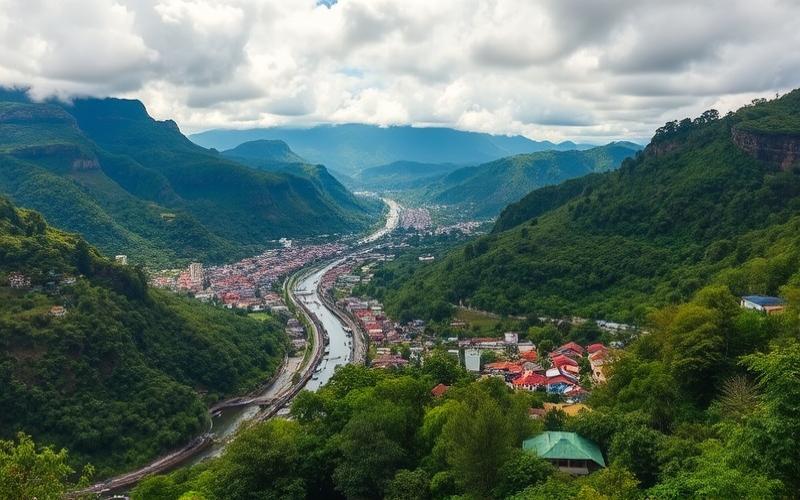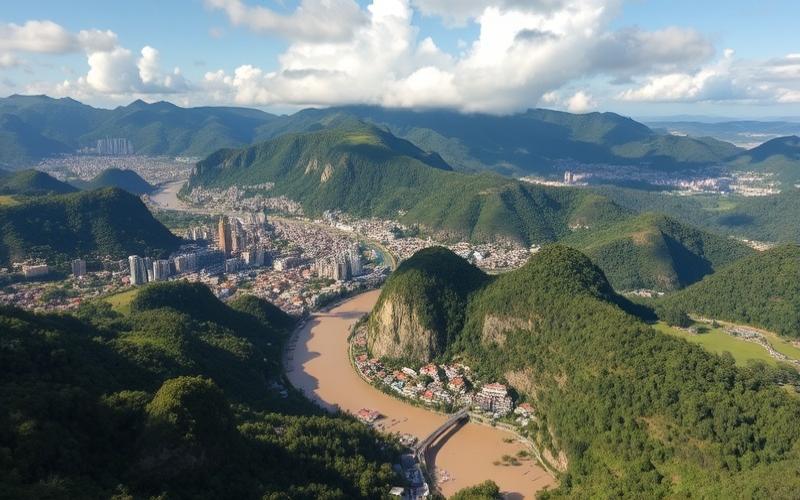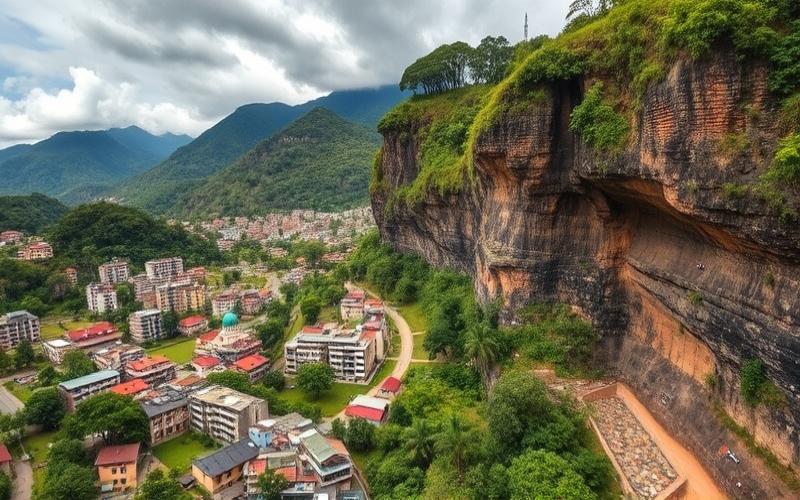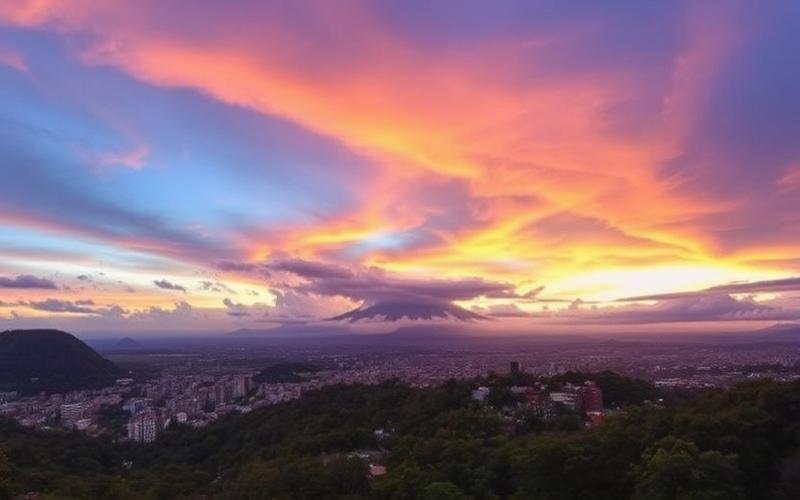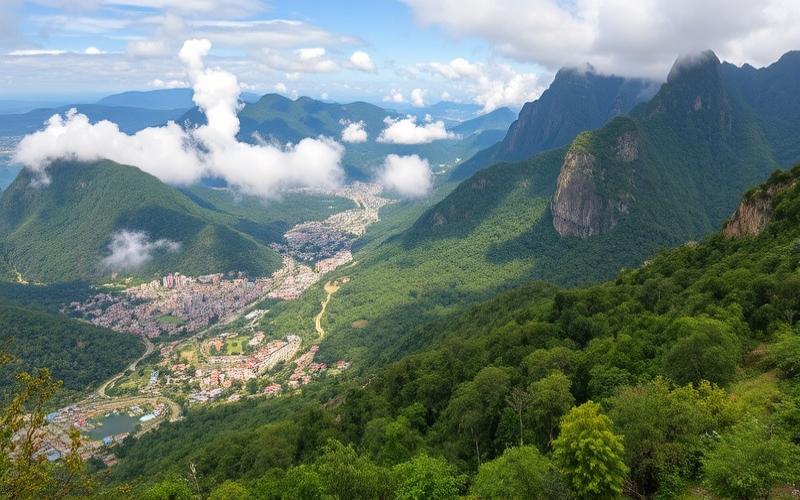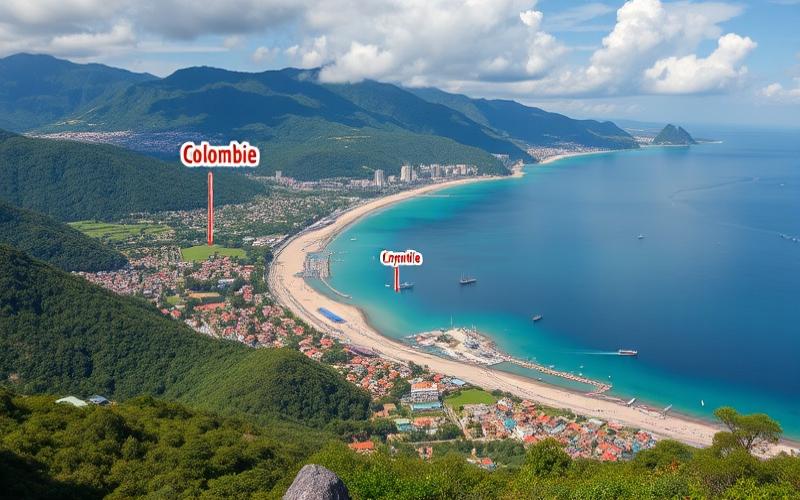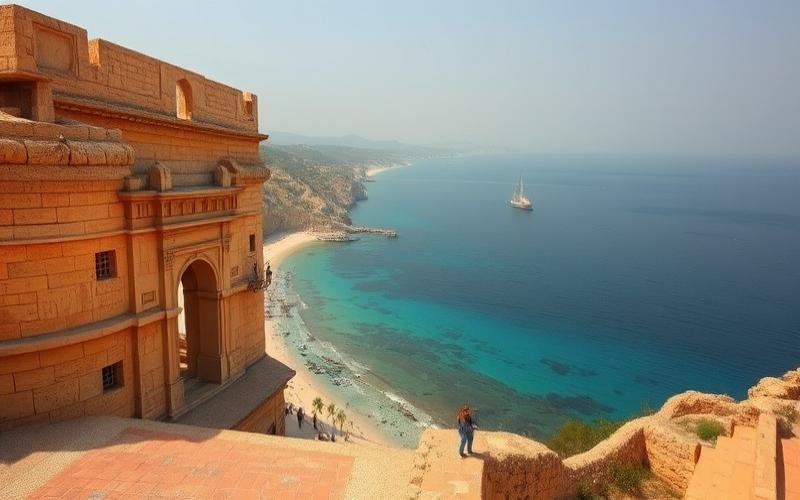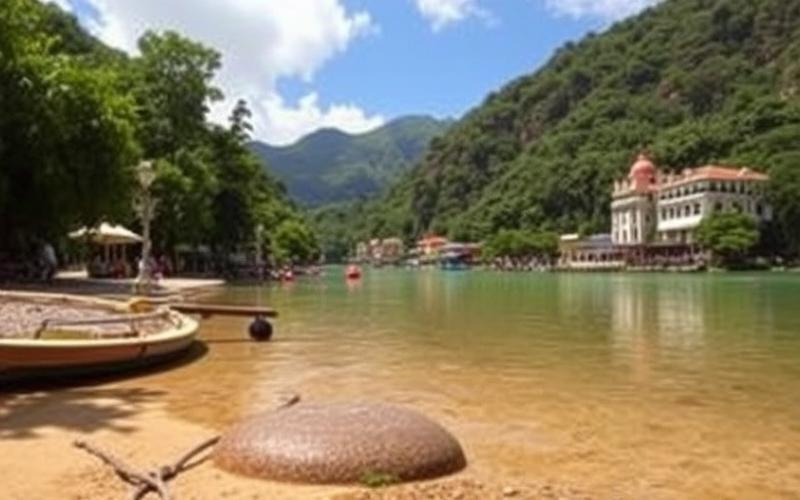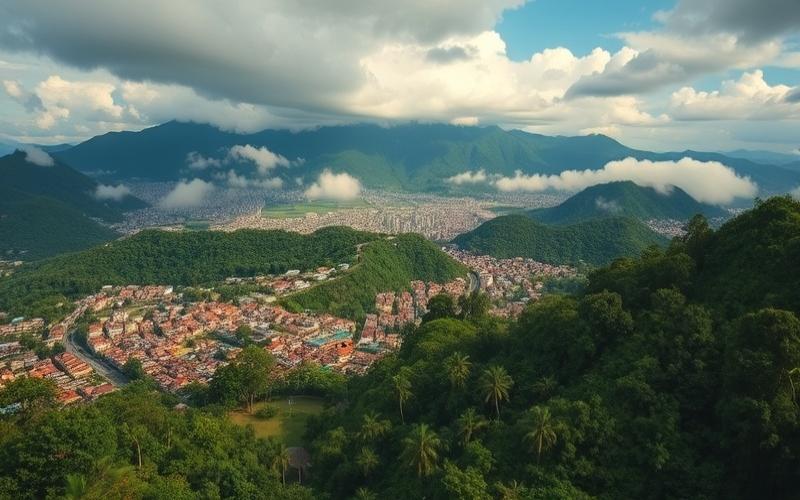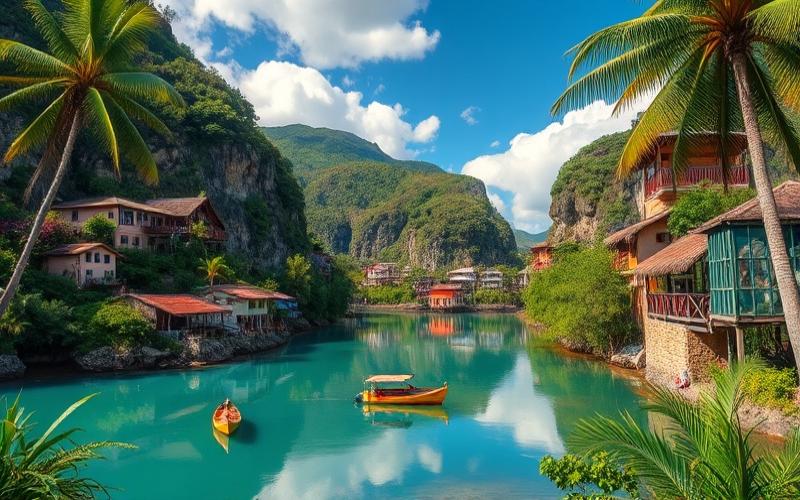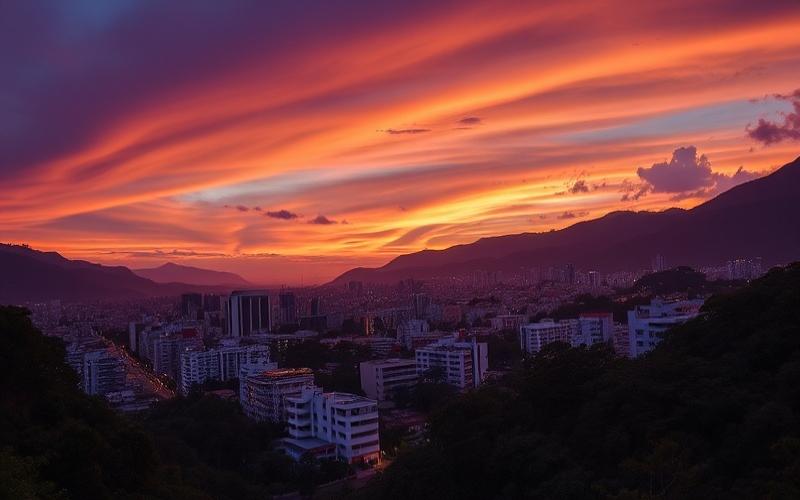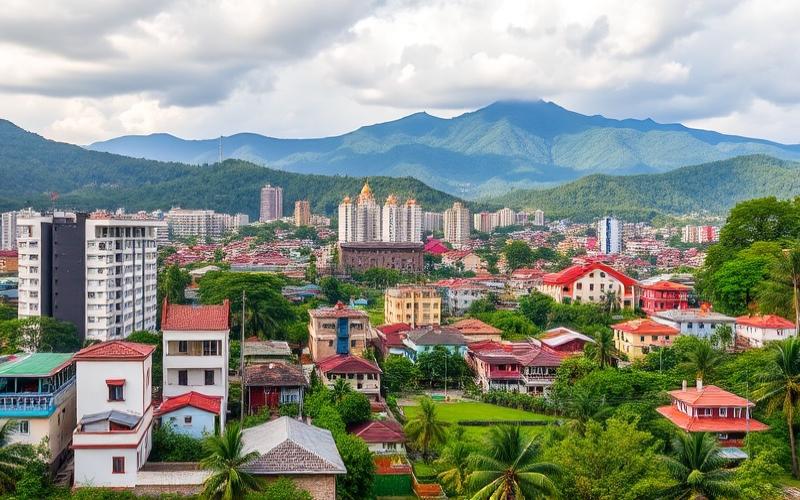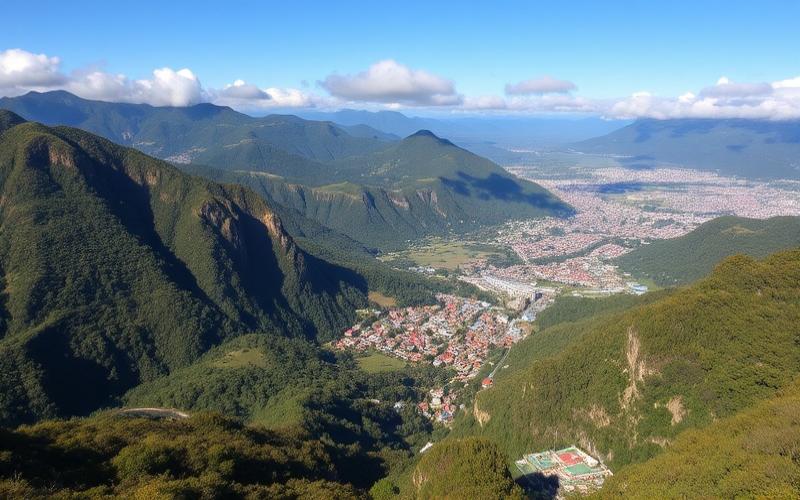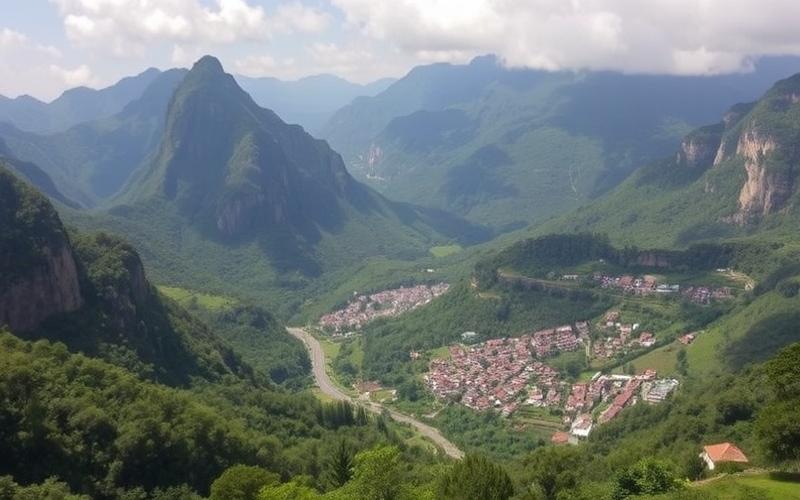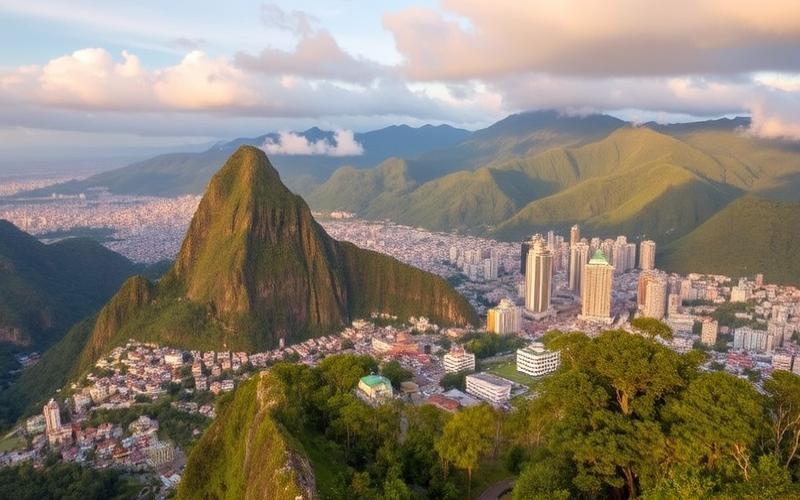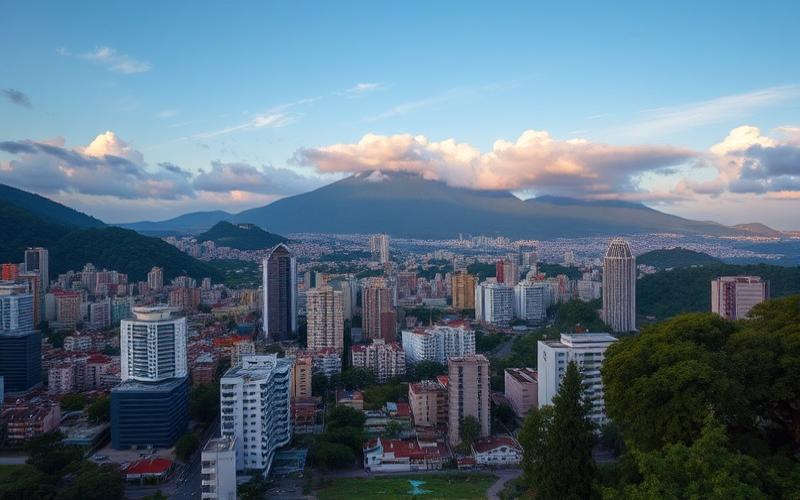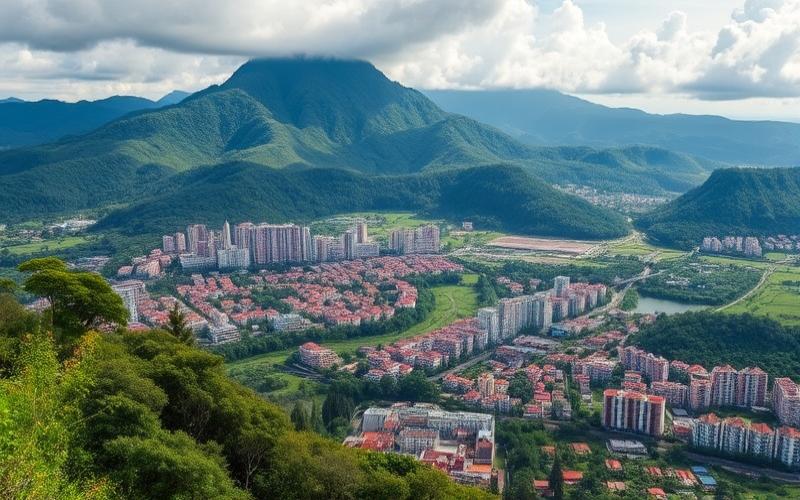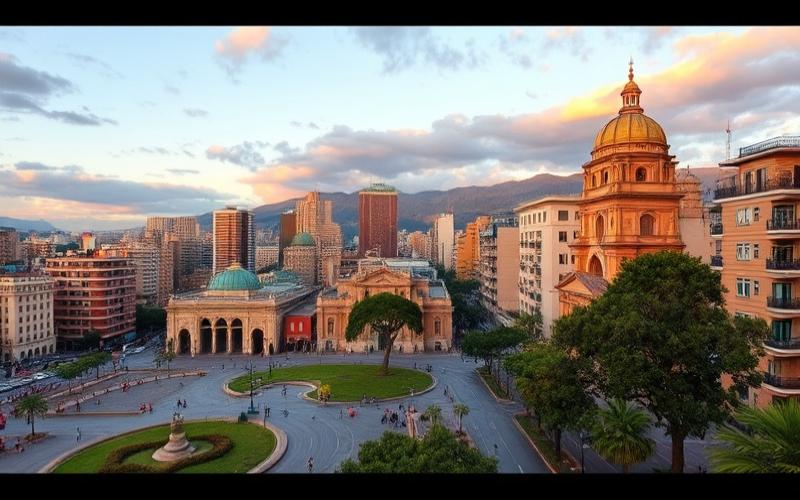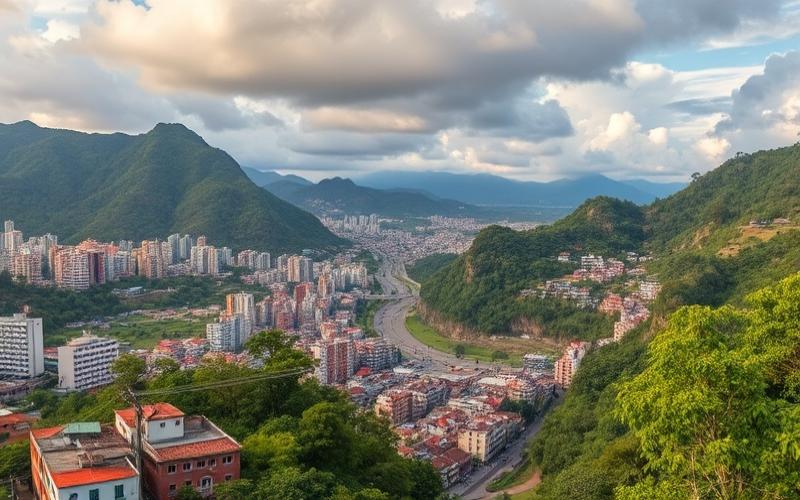
 Published on and written by Cyril Jarnias
Published on and written by Cyril Jarnias
Relocating to Colombia is a captivating adventure, full of cultural discoveries and breathtaking landscapes, but it’s crucial to remain vigilant about safety issues to fully enjoy this experience with peace of mind.
Indeed, although the country has made great strides toward a more stable environment, certain challenges persist.
Understanding local realities, staying informed about areas to avoid, and following practical advice can make all the difference.
This article guides you through the essential steps for a successful relocation, offering solutions and recommendations to appreciate this fascinating country while ensuring your personal safety on a daily basis.
Understanding Security Challenges in Colombia
Analysis of Main Security Challenges in Colombia
Colombia continues to face major security issues, despite significant progress since the 2016 peace agreement. The main challenges are related to:
- Presence of criminal organizations: Several illegal armed groups, including dissident factions of the FARC, the ELN, as well as narco-criminal organizations, continue to carry out violent activities, including kidnappings, extortion, armed attacks, and the use of landmines.
- Drug trafficking: Colombia remains the world’s leading producer of cocaine. Clashes over control of drug trafficking routes fuel violence, particularly in border regions and southwestern departments (Caquetá, Putumayo, Cauca, Nariño, Valle del Cauca, Chocó).
- Armed conflicts: Despite the demobilization of thousands of combatants, new armed groups have taken control of territories once dominated by the FARC, worsening insecurity and causing mass population displacement, targeted killings, and child recruitment.
Progress Made by the Government
- Signing of the 2016 peace agreement with the FARC, followed by the demobilization of nearly 12,000 combatants.
- Gradual implementation of policies to dismantle illegal armed groups, although their impact remains limited in some regions.
- Launch of pilot projects to strengthen security in affected territories and attempts at dialogue with armed actors seeking a peaceful solution.
Specific Areas with Increased Risk for Expatriates
| City/Region | Specific Risks | Particular Advice |
|---|---|---|
| Southern Bogota (Kennedy, Ciudad Bolivar, Soacha) | High crime, theft, assaults | Not recommended except when necessary |
| Downtown Bogota (Candelaria, Monserrate) | Frequent theft, scopolamine attacks | Increased vigilance, avoid at night |
| Medellín (working-class neighborhoods) | Scopolamine attacks, deteriorating security | Avoid nighttime travel |
| Departments of Cauca, Nariño, Chocó, Catatumbo | Intense armed group activity, bombings, kidnappings | Absolutely avoid |
| Border areas with Venezuela and Ecuador | Presence of armed groups and drug traffickers | Absolutely avoid |
Impact on Daily Life of Residents
- Forced displacement: Thousands of families flee conflict zones each year.
- Confinements and insecurity: Residents face movement restrictions and chronic insecurity in some regions.
- Urban crime: Pickpocketing, assaults, extortion, and credit card fraud are common in major cities.
- Social tensions: Murders of social leaders and former combatants hinder national reconciliation.
Recent Statistics
- In 2025, at least 23 former combatants who signed the peace agreement have been murdered since the beginning of the year.
- Several explosive and firearm attacks have caused numerous casualties in the departments of Cauca, Valle del Cauca, and Catatumbo.
- Rates of muggings, scopolamine assaults, and kidnappings are rising in major cities.
Practical Advice for Expatriates
- Choose secure neighborhoods and consult embassies about areas to avoid.
- Never travel alone at night, even for short distances.
- Avoid leaving main roads and venturing into isolated places.
- Use official transportation methods (registered taxis, recognized apps).
- Do not display valuables and keep personal circumstances discreet.
- Be vigilant when withdrawing money and in crowded public places.
- In case of emergency, contact the embassy or consulate, or dial the local emergency number (123 in Colombia).
Available Resources to Ensure Safety
- Register with the Ariane service (for French citizens) or equivalent to receive security alerts.
- Consular services for assistance in case of problems.
- Official information platforms (Ministry of Foreign Affairs, government websites).
- Local security mobile apps to follow security updates in real time.
Key takeaway: ⚠️ Constant vigilance and adopting cautious behaviors are essential to minimize risks during a stay in Colombia.
Good to know:
Colombia has reduced its violence rates, but certain areas, such as the departments of Cauca and Norte de Santander, remain high-risk due to armed conflicts and drug trafficking; expatriates should consult local security alerts and use prevention apps to stay informed.
Is Colombia Safe for Expatriates?
Main Security Concerns for Expatriates in Colombia
- High crime rates, with prevalence of armed robbery, assaults, pickpocketing, and kidnappings throughout the country, including in affluent neighborhoods of major cities.
- Frequent incidents include:
- Theft on streets, in transportation, restaurants, and shopping centers.
- Express kidnappings where the victim is forced to withdraw money from an ATM.
- Scopolamine attacks, particularly in Bogotá and Medellín, which can lead to theft and assaults.
- Presence of illegal armed groups, especially in border regions and the Pacific coast, with risks of attacks, extortion, and landmine use.
Regions to Avoid
- Border areas with Venezuela, Panama, Ecuador, Peru, and Brazil.
- Pacific coast (departments of Chocó, Cauca, Valle del Cauca, except Nuqui and Bahia Solano accessible by plane).
- Working-class and vulnerable neighborhoods in major cities (Kennedy, Ciudad Bolivar in Bogotá; certain neighborhoods in Medellín).
Safer Regions
- Residential neighborhoods in northern Bogotá (Chapinero, Chico, Parque de la 93, Zona T, Usaquen), although muggings are reported there.
- Controlled tourist areas, secure hotels, modern business districts.
Government Security Measures
- Strengthening police patrols in urban centers and tourist areas.
- Deployment of special forces in high-risk regions and border areas.
- Improvement of security infrastructure: installation of surveillance cameras, checkpoints, information campaigns for foreign residents.
- Increased collaboration with embassies for expatriate security and emergency situation management.
Personal Experiences and Expatriate Testimonials
Many expatriates report that daily life is pleasant in secure neighborhoods, with strong local hospitality and vibrant culture.
Expatriates emphasize the need for constant vigilance: avoiding going out alone at night, not displaying signs of wealth, and being wary of street-hailed taxis.
Testimonials mention security-related challenges, such as fear of express kidnappings or assaults, but also the effectiveness of expatriate support networks for obtaining reliable information and practical advice.
Some expatriates share positive experiences thanks to their integration into the local community, learning Spanish, and respecting customs, which reduces risks and facilitates adaptation.
Practical Tips to Reduce Security Risks
- Learn Spanish to better understand the environment and local warnings.
- Inform yourself about local customs and behaviors to adopt to avoid drawing attention.
- Participate in security training, often offered by companies or expatriate associations.
- Use only official taxis or reputable transportation apps.
- Keep personal belongings secure, do not carry large amounts of cash, and prefer secure hotels or accommodations.
- Avoid vulnerable neighborhoods and never resist during an assault.
- Stay informed about alerts and instructions issued by embassies and local authorities.
Role of Expatriate Communities and Local Organizations
Expatriate communities play a key role in sharing security information, mutual assistance, and support in case of problems.
Groups on social media, forums, and associations organize meetings, prevention workshops, and disseminate real-time alerts.
Local organizations offer accompaniment services, legal advice, and specific security training.
Integration into these networks allows for a safer and more enjoyable experience, receiving updated recommendations, and building solidarity ties.
| Region/Neighborhood | Security Level | Main Risks | Recommendations |
|---|---|---|---|
| Residential neighborhoods in northern Bogotá | Relatively high | Muggings, assaults | Vigilance, official taxis, no nighttime outings |
| Working-class/vulnerable neighborhoods | Low | Gangs, organized crime, violence | Avoid, limited police assistance |
| Border areas and Pacific coast | Very low | Armed groups, drug trafficking, landmines | Formally discouraged |
| Controlled tourist areas | Moderate | Theft, assaults | Increased vigilance, secure accommodation |
List of Essential Tips for Expatriates
- Learn Spanish.
- Integrate into the expatriate community.
- Avoid risky neighborhoods and regions.
- Use only reliable transportation methods.
- Follow recommendations from local authorities and embassies.
- Maintain constant vigilance, especially at night.
- Participate in security training.
Security in Colombia for expatriates heavily depends on the choice of living location, adopting cautious behaviors, and integration into local support networks. Risks exist, but they can be significantly reduced with appropriate measures and continuous vigilance.
Good to know:
Expatriates in Colombia will find increased security in cities like Medellín, thanks to reinforced police patrols, while regions like parts of the Pacific coast should be avoided; learning Spanish and integrating into local communities can improve personal safety.
Tips to Strengthen Your Security in Colombia
To avoid dangerous situations during a stay abroad, it’s essential to adopt a series of preventive behaviors and remain constantly vigilant, especially in crowded or tourist public places.
Essential Preventive Behaviors
- Stay aware of your surroundings: avoid isolated places, prefer busy streets and neighborhoods, and be particularly cautious in crowds or during protests.
- Use only official taxis or licensed transportation services. Verify the driver’s identity and the presence of an official logo before getting in.
- Avoid withdrawing or carrying large amounts of cash. Prefer card payments and carry only the bare minimum for the day.
- Never leave personal belongings unattended and use locked safes or lockers in accommodations for your valuables.
- Do not leave bags or items visible in a rental car.
Respecting Local Cultural Habits
- Research the country’s customs and rules of life (dress code, public behavior, alcohol consumption, etc.).
- Respect local regulations, follow authorities’ instructions, and avoid participating in protests.
- Adopt a discreet attitude and avoid any behavior that could be interpreted as provocative or disrespectful.
Staying Informed About Local Conditions
- Regularly consult advisories and recommendations from embassies, consulates, and government websites.
- Follow local media to be quickly alerted in case of emergencies or security changes.
- Install official alert or information apps on your smartphone.
Adopting Discreet Behavior
- Do not display ostentatious signs of wealth (jewelry, watches, expensive electronic devices).
- Carefully choose the neighborhood where you stay, prefer areas known to be safe and close to emergency services or embassies.
Available Resources in Case of Need
| Resource | Function/Contact |
|---|---|
| Embassy/Consulate | Assistance in case of lost documents, arrest, accident, or crisis |
| Local emergency number | Memorize upon arrival (police, ambulance, fire department) |
| Mobile security app | SOS function, geolocation, real-time alerts |
| Government platforms | Advice and alerts on local situation |
| International assistance services | Dedicated numbers for travelers (insurance, medical assistance, etc.) |
Smartphone Security Applications
- Install apps that allow you to share your real-time location with loved ones.
- Activate alert notifications from local authorities or embassies.
- Use a VPN and avoid connecting to unsecured public Wi-Fi networks to protect your personal data.
- Prefer tools offering an emergency call function or quick contact with emergency services.
Always be prepared to ask for help and contact authorities or your embassy in case of problems.
Good to know:
Be discreet with your valuables, stay informed through local media and embassy recommendations, and prefer using personalized security apps; carefully choose your neighborhood and use secure taxis for your travels.
Preparing for a Smooth Relocation to Colombia
Essential Administrative Steps for Relocating to Colombia
- Obtain an appropriate visa (work, student, investor, etc.) based on your relocation project.
- Gather necessary documents: valid passport, proof of resources, employment letter or enrollment, criminal record certificate, ID photos.
- Submit the application to the Colombian consulate or embassy, then register the visa on-site with Migración Colombia.
- Apply for the Cedula de Extranjería (resident card) once in Colombian territory.
- Register with the French abroad registry at the consulate if you are a French national.
Preparations to Implement Before Departure
- Subscribe to an international health insurance covering medical care and repatriation.
- Research the local situation (security, health, housing) through official sites and specialized guides.
- Schedule appointments for recommended vaccines (yellow fever, hepatitis, typhoid).
- Plan for certified translation of your important documents.
- Learn basic Spanish to facilitate integration and daily life.
- Prepare copies of your documents and store them securely.
Finding Safe Housing
- Prefer recognized platforms (Airbnb, local agencies, expatriate groups) for an initial rental.
- Ensure the accommodation has security measures: guard service, cameras, controlled access.
- Check proximity to amenities (transportation, shops, hospitals).
- Avoid isolated or reputedly unsafe neighborhoods.
Neighborhoods to Prefer for Expatriates
| City | Recommended Neighborhoods | Characteristics |
|---|---|---|
| Bogotá | Chapinero, Usaquén, Parque 93 | Security, nightlife, shops |
| Medellín | El Poblado, Laureles | International atmosphere, security |
| Cali | San Antonio, Granada | Historic, restaurants, security |
| Cartagena | Bocagrande, Getsemani | Touristic, beach access, security |
Precautions to Take for Daily Security
- Do not display valuables, jewelry, or watches.
- Keep passport and money in a safe or carry small amounts.
- Take taxis via apps or recommended by hotels, never from the street.
- Avoid traveling alone at night and stay in frequented places.
- Never accept drinks, food, or cigarettes from strangers.
- Be careful of pickpockets and muggings (bags, phones).
- Keep a photocopy of your identification documents.
Preferred Transportation Methods
- Use official taxis or apps (Uber, Beat, Cabify).
- Prefer urban buses and TransMilenio in large cities.
- For long-distance travel, choose recognized bus companies or airplanes.
- Avoid bicycle touring and hitchhiking in rural or isolated areas.
Respecting Local Customs for Harmonious Integration
- Greet with respect (hello, buenas días), smile, and avoid arrogance.
- Be punctual in professional settings, but tolerate some flexibility in private matters.
- Dress modestly, especially in public and religious places.
- Do not broach sensitive topics (politics, internal conflicts) unless invited.
- Show interest in local culture (gastronomy, music, traditional festivals).
- Participate in community events and adopt an open attitude.
Importance of Learning Some Spanish Basics
- Facilitates daily life, procedures, housing search, and social integration.
- Allows understanding of safety instructions and avoiding misunderstandings.
- Shows respect towards local culture and elicits goodwill from Colombians.
Importance of Subscribing to International Health Insurance
- Private medical care is of good quality but expensive, access to public healthcare may be limited for foreigners.
- International health insurance covers medical expenses, hospitalization, and repatriation in case of emergency.
- It provides additional security against health unforeseen events and facilitates access to the best facilities.
List of Essential Preparations Before Departure:
- Visa application and Cedula de Extranjería
- International health insurance
- Vaccines and medical certificate
- Spanish learning
- Certified translations
- Secure copies of documents
- Temporary booking of secure housing
Summary Table of Recommended Neighborhoods:
| City | Neighborhoods | Security | Atmosphere |
|---|---|---|---|
| Bogotá | Chapinero, Usaquén | High | Dynamic |
| Medellín | El Poblado, Laureles | High | Cosmopolitan |
| Cali | San Antonio, Granada | High | Historic |
| Cartagena | Bocagrande, Getsemani | High | Touristic |
Good to know:
Before leaving, make sure to finalize your administrative procedures for the visa and learn some Spanish basics; opt for safe neighborhoods like El Poblado in Medellín, use public transportation or reliable ride-sharing platforms, respect local customs, and subscribe to international health insurance for successful integration.
Disclaimer: The information provided on this website is for informational purposes only and does not constitute financial, legal, or professional advice. We encourage you to consult qualified experts before making any investment, real estate, or expatriation decisions. Although we strive to maintain up-to-date and accurate information, we do not guarantee the completeness, accuracy, or timeliness of the proposed content. As investment and expatriation involve risks, we disclaim any liability for potential losses or damages arising from the use of this site. Your use of this site confirms your acceptance of these terms and your understanding of the associated risks.

